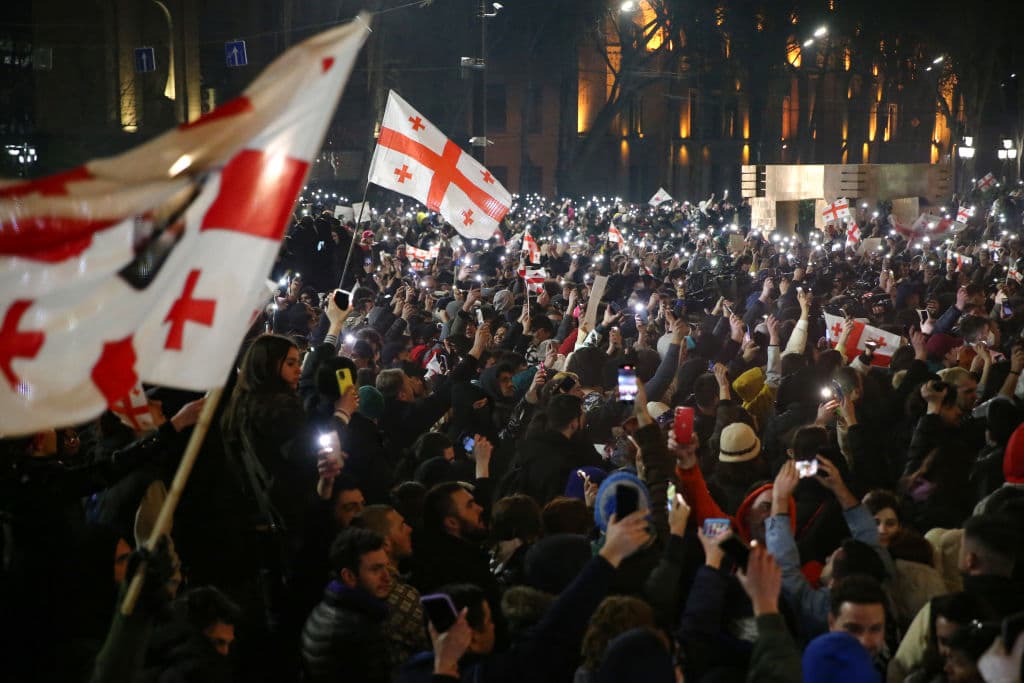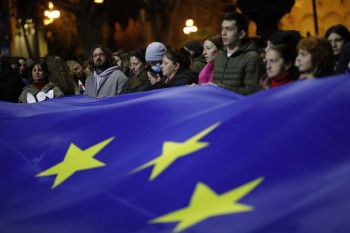Georgian opposition demands resignation of government, early elections

On the third day of mass protests in Tbilisi, Georgian opposition politicians voiced their demands for the resignation of the country's government and early elections, local TV channel Rustavi 2 reported on March 9.
Part of the opposition said the protests triggered by a controversial bill on "foreign agents" passed by the Georgian parliament in the first reading would not stop until the participants were convinced that Georgia's course to Europe is "unshakable," according to Rustavi 2.
Georgian news outlet Interpressnews reported that the protesters had announced another rally on March 10, when the country's parliament should vote on the so-called second reading of the bill it claimed to have already withdrawn.
Several law experts said, as cited by European Pravda, that it is procedurally impossible to simply "withdraw" a draft law approved in the first reading. The parliament can do it only by rejecting the bill during the second reading.
The scandalous bill seeks to require Western-funded NGOs to register as "foreign agents" and restrict their activities. Opponents of the Geogian government argue that the bill is a copy of Russian dictator Vladimir Putin's authoritarian foreign agent law and will put an end to Georgia's aspirations to join NATO and the EU.
The legislation prompted massive protests on March 7-8, with tens of thousands taking to the streets, clashing with the police, building barricades, and trying to storm the parliament building. The police have cracked down on the demonstrators, using water cannons and tear gas and beating up some protesters.
The initial demands of the March 9 rally on Tbilisi's central Rustaveli Avenue were an immediate plenary session to revoke the Kremlin-inspired bill and the release of the demonstrators detained on the first two days of protests, according to Interpressnews.
Later the publication reported that almost all of the 133 people arrested on March 7-8 were released, except for one protester detained under a criminal code article.
Russia's "foreign agent" law, which is similar to the Georgian one, requires organizations that receive funding from abroad or are perceived by the Kremlin to have been influenced by foreign entities to register as a "foreign agent."
The law mandates these organizations to undergo rigorous financial audits and to label all their content with a disclaimer stating that it is being distributed by a "foreign agent." However, this law is often used to target and silence groups and individuals who are critical of the government.
In recent months the Georgian government has spoiled its relations with the West and Ukraine and drifted into Russia's orbit despite the fact that 20% of Georgian territory is currently occupied by Russia.











